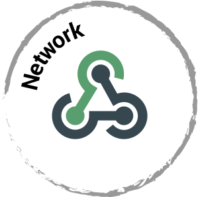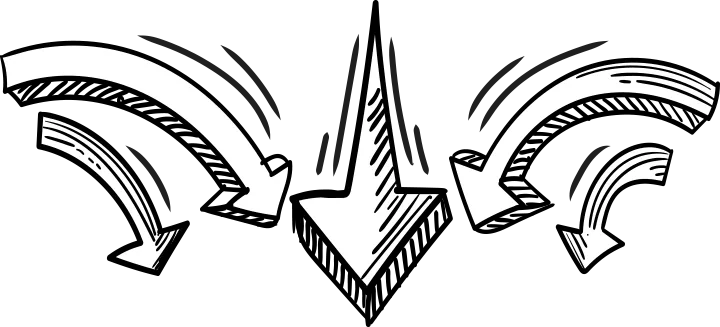Successful affiliate programs that are vibrant, growing, and profitable don’t happen by accident.
Gone are the days where Marketers would throw money at a campaign and cross their fingers that it will pay off. Today, there is far too much at stake.
Affiliate program management takes a comprehensive strategy to drive profitable incremental revenue.
Hitting ROAS goals require true relationships with top producing affiliates.
JEBCommerce has been nurturing those relationships for over 15 years.
In this article we are pulling back the curtain to share an insider secret to affiliate program management, how to manage affiliates like a pro.
How to Manage Affiliates like a Pro:
- Deep understanding of what an affiliate program is.
- 3 Major Components to Managing an Affiliate Program.
- Affiliate Program Management Options
- Exclusive tips from award winning affiliate program managers.
If you have any questions about this article or are looking to accelerate your affiliate channel revenue, contact JEBCommerce.
What is an Affiliate Program?
Affiliate Marketing is a branch of marketing (much like social, email or influencer marketing) where a third party source drives traffic to an e-commerce site, and commissions are paid to the third party page when their traffic helps convert a sale.
Affiliate Marketing is considered a very important e-commerce revenue source for many brands who sell goods or services online.
Traffic and conversions are tracked from a third party source to the e-commerce site paying commissions by what is referred to as a Network.
This Network will provide unique code strings to each third party site (referred to often as both an Affiliate or Publisher) which will help track traffic and what commissions are earned.
The Network will also support payment of Affiliates based on a predetermined set of partnership rules.
This process can also be referred to PPA campaigns, (pay-per-action.) Instead of paying for a click or impression, the payment from an affiliate partner is only earned if a solid sale takes place.
Examples of Affiliates include:
- Large scale Coupon sites which provide consumers additional discounts to help convert a sale. (Notable examples include: RetailMeNot, Groupon and Coupons.com)
- Blogs or Influencer sites where authors earn commissions on specific product sales for brands they might endorse or represent. (Notable examples include: Kim Kardashian, Travel or Mommy Bloggers)
- News or Mass Media Sites who may feature specific brands through advertising or content articles. (Notable examples include: NY Times, Buzzfeed and The Chive)
- Cash back or Loyalty sites designed to be a go-to site for consumers to shop from, where they return to shop from regularly in order to receive benefits such as cash back for purchases. (Notable examples include: Ebates/Rakuten, Employee Discount or Airline Points sites)
- A Sub-Affiliate Network is a third party network that affiliates can join if they’d prefer to work through one source, vs. have a direct relationship with a brand or agency.
- A Tool is defined as a unique resource for sites that is bonused through an affiliate commission. These can be retargeting tools, or link-redirect tools.
Because management of a Network and up to hundreds of Affiliate Relationships can be time consuming, a brand, or Advertiser, will often hire an Affiliate Marketing Agency to manage this specific branch of e-commerce marketing.
An Affiliate Marketing Agency assigns teams of Affiliate Account Managers to run programs for Advertisers and track performance and success of the channel.
JEBCommerce, for example, is an affiliate management agency and we cultivate the relationship between an advertiser and a publisher on behalf of the advertiser in question.
One of the reasons affiliate programs are so popular is that they offer a win-win solution for both merchant and affiliate.
Merchant Advantage
Pay per action is a much better model than banner advertising.
Banner advertising charges by cost per 1000 banner views, or CPM.
The affiliate channel’s PPA model is relevant to the percentage paid to an affiliate, and the merchant only has to pay when a sale is completed.
In fact, the amount paid to an affiliate for a purchase through an affiliate link ranges from 10% – 20% the cost of the same sale made through banner advertising.
Furthermore, if the customer likes the merchant, they are likely to go directly to the merchant website to make their next purchase.
Resulting in a lifetime customer.
Affiliate Advantage
The affiliate, digital marketer, makes money as long as visitors are clicking on the affiliate links and making purchases.
The major benefit here is not having to go through the trouble of setting up an e-commerce web store, securing credit cards, or dealing with logistics.
An affiliate gets to focus solely on promoting the product to their viewer base.

What is Affiliate Program Management?
Auto-pilot is not a revenue growth strategy.
The only way to see continuous success within the affiliate channel is with proactive affiliate program management.
Affiliate program management is the process of building and growing a channel of digital marketers to drive traffic and sales.
There are three major components to manage: merchant, network and affiliates.

Merchant
A successful affiliate manager is in contact with the merchant regularly—at the very least, reaching out to the merchant every month about new promotions and coupon codes that can be presented to affiliates.
A newsletter is part of a proactive manager’s toolbox, and some of that monthly content will come from the merchant.
Merchants need to know how the program is performing; affiliate program management is about results, and reports must be presented.
When new technology is introduced by the network, the proactive affiliate manager brings it to the merchant.
New tech often means tracking code and pixels can be upgraded or that data feeds can be further optimized.

Network
An educated manager understands the strengths and weaknesses of each network.
Being on the wrong network could mean the difference between growth and the program declining.
A proactive manager works to move a program onto the best network for its needs.
Not all affiliates promote merchants equally, and different rules are needed for attribution.
Having the ability to split commissions and protect hard working affiliates from losing sales at the last minute to another affiliate is crucial.
Responsible affiliate managers implement available network tools that ensure level playing fields for all the affiliates.

Affiliates
The daily work of the proactive affiliate manager is the recruitment, activation, and motivation of affiliates.
Without strong affiliates to promote products and drive traffic to a merchant, there is no affiliate program.
Affiliates come in a variety of shapes and sizes.
- Coupon affiliates must be monitored for proper code promotion.
- Loyalty affiliates can take credit for another affiliate’s sales or from other e-commerce channels the merchant may have.
- Bloggers need to be monitored for FTC compliance.
- Deal sites can drain inventory and crash a merchant website.
How to Manage Affiliates
The key to successful affiliate management is cultivating great relationships!
You must create a bond between the advertiser and publisher, then shape and form that bond into successful revenue generation for all parties.
First begin with the relationship.
Always represent the brand and realize that respectful partnerships are the key to success.
Communicate regularly with publishers. Emails, phone calls and regular network newsletters are critical.
Remember, publishers work with hundreds, if not thousands of affiliate managers on a regular basis. What makes this brand stand out?
Challenge publishers. It is perfectly acceptable in a relationship for you to challenge the publishers for success. If all parties have a relationship built on trust and the need to succeed for all, pushing for even greater sale numbers are natural and expected.
Finally – be respectful. We’re all in this together. Treat everyone like you’d like to be treated and remember – affiliate is a small world and you WILL meet everyone again.
Program Management Options
Affiliate program management is the process of overseeing and developing a brand’s affiliate marketing program.
There are three different ways to manage an affiliate program that are popular amongst advertisers: in house, agency, strategy development.
In-House Manager
Once an affiliate program is launched, the advertiser may choose to task someone in-house to manage it.
The most frequent choice within an organization tends to be the paid media manager or display advertising strategist.
Be mindful that this person is not spreading themselves too thin because this inevitably leads to overlooking important areas.
Oftentimes this person is not fully trained and they do not have the necessary tools, connections and experience to manage an affiliate program effectively.
If you do decide to hire someone in-house for the management of your affiliate program, make sure it is a professional.
Hire someone who has a solid track record of developing, protecting and optimizing affiliate programs within your niche market.
An affiliate program is a serious cross-channel endeavor, without proper management, you run the risk of cannibalizing your own marketing efforts and ultimately hurting your brand.
Affiliate Management Agency
Partnering with an affiliate marketing company is the insider secret to scaling e-commerce revenue.
Mobilizing an experienced team of professionals on your affiliate program allows for many advantages including rapid scale, leveraging existing agency partnerships and lower affiliate channel costs.
Affiliate management agencies increase new customers and reduce costs associated with a digital retailer’s affiliate marketing channel.
Utilizing creative and customized commission structures, proactive affiliate partner recruitment and key performance indicator management, affiliate management agencies provide solid structure to lower your blended costs and increase your revenue.
Not everyone is going to need an affiliate management company, read this article by JEBCommerce to find out who does not need an affiliate agency and which advertisers would benefit the most from partnering with one.
Affiliate Strategy Development
If you don’t have the marketing budget for a full affiliate program take over what about a program overhaul?
Consider leveraging the experts for a full review of your affiliate program and strategy development that goes beyond the basics.
Set up a 15 minute call with an award winning team to answer questions and get you on the road to success.
We can fix your technical setup, affiliate policies and identify opportunities for growth.
You will walk away with a solid strategy plan that positions your affiliate channel for revenue growth, liability reduction and incremental profitability.

Dorothy Dalton
Affiliate Manager
“Communication is key; communicating daily, weekly, or monthly with clients, affiliates, and networks through calls, emails, sending postage mail, etc. will help you in managing your affiliate program.”

Kristin Wardwell
Senior Affiliate Manager
“It’s really important to study the product and industry of the affiliate program you are managing so you have an understanding of seasonality and sales trends, competitors in the space, and customer demographics so you know which affiliates will work best to partner with.”

Kenny Dodge
Affiliate Manager
“My biggest tip for managing an affiliate program; take personal ownership of your program.
When you have ownership of your affiliate programs, you feel a sense of responsibility and pride to make that program succeed. You’ll work hard to grow the program and that sense of buy-in will be noticed and appreciated.
If you have personal ownership over your affiliate program, you’ll catch yourself saying “our website” when referring to the clients website, or “my favorite thing about our products is…” – that type of mentality tells the affiliates that you take this program seriously and will do everything you can to help it grow.”
Managing Affiliates like a Pro Takeaways:
- An affiliate program is an advertising relationship in which an online merchant pays a digital marketer for a sale that is made as a result of a link from their website.
- This form of advertising is referred to as PPA or paid-per-action.
- Auto-pilot is not a revenue growth strategy.
- Affiliate program management is the process of building and growing a channel of digital marketers that drive traffic and sales.
- There are three ways to manage an affiliate program: in house, agency, strategy development.
- Communication is key
- Study the product and industry.
- Take personal ownership.


